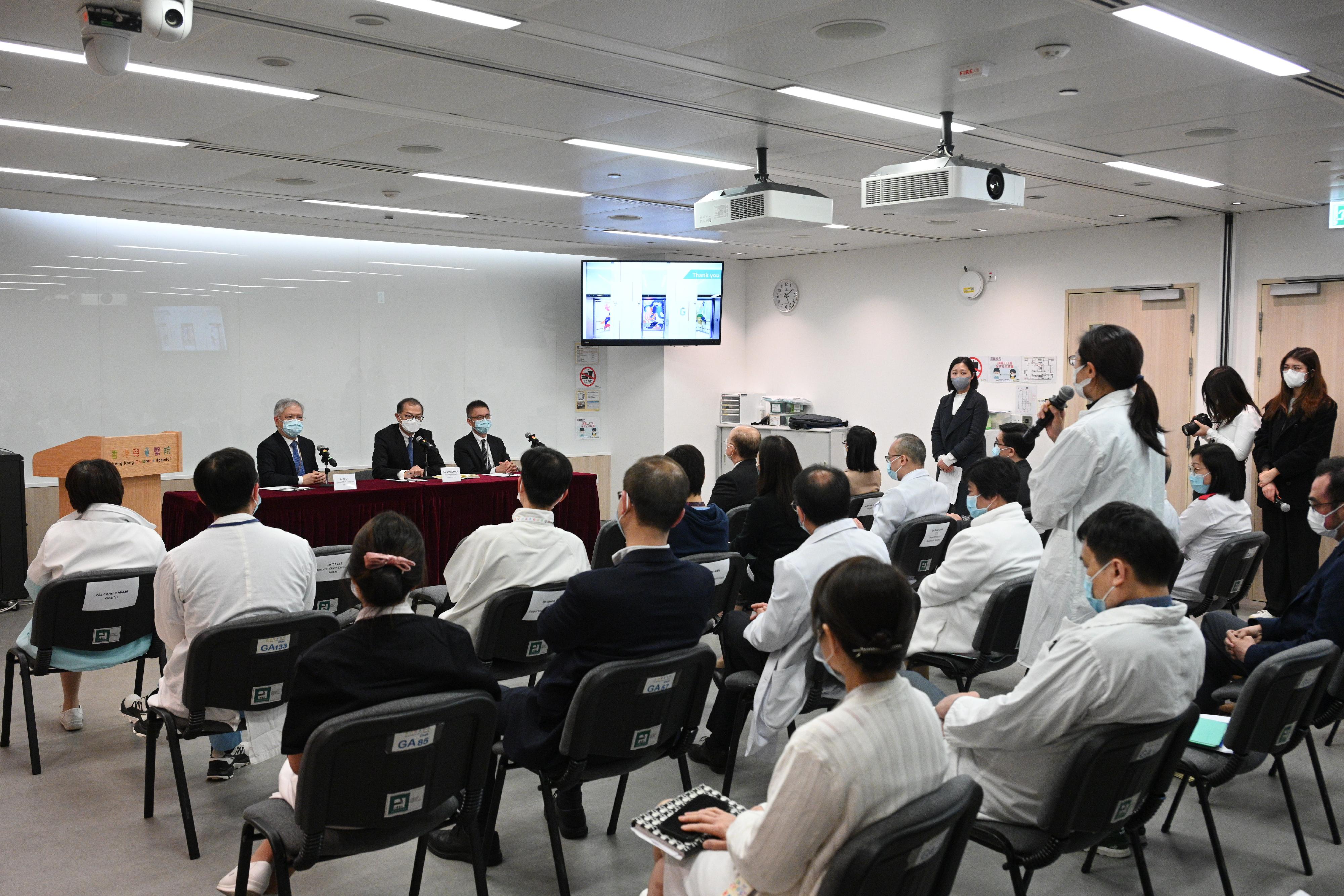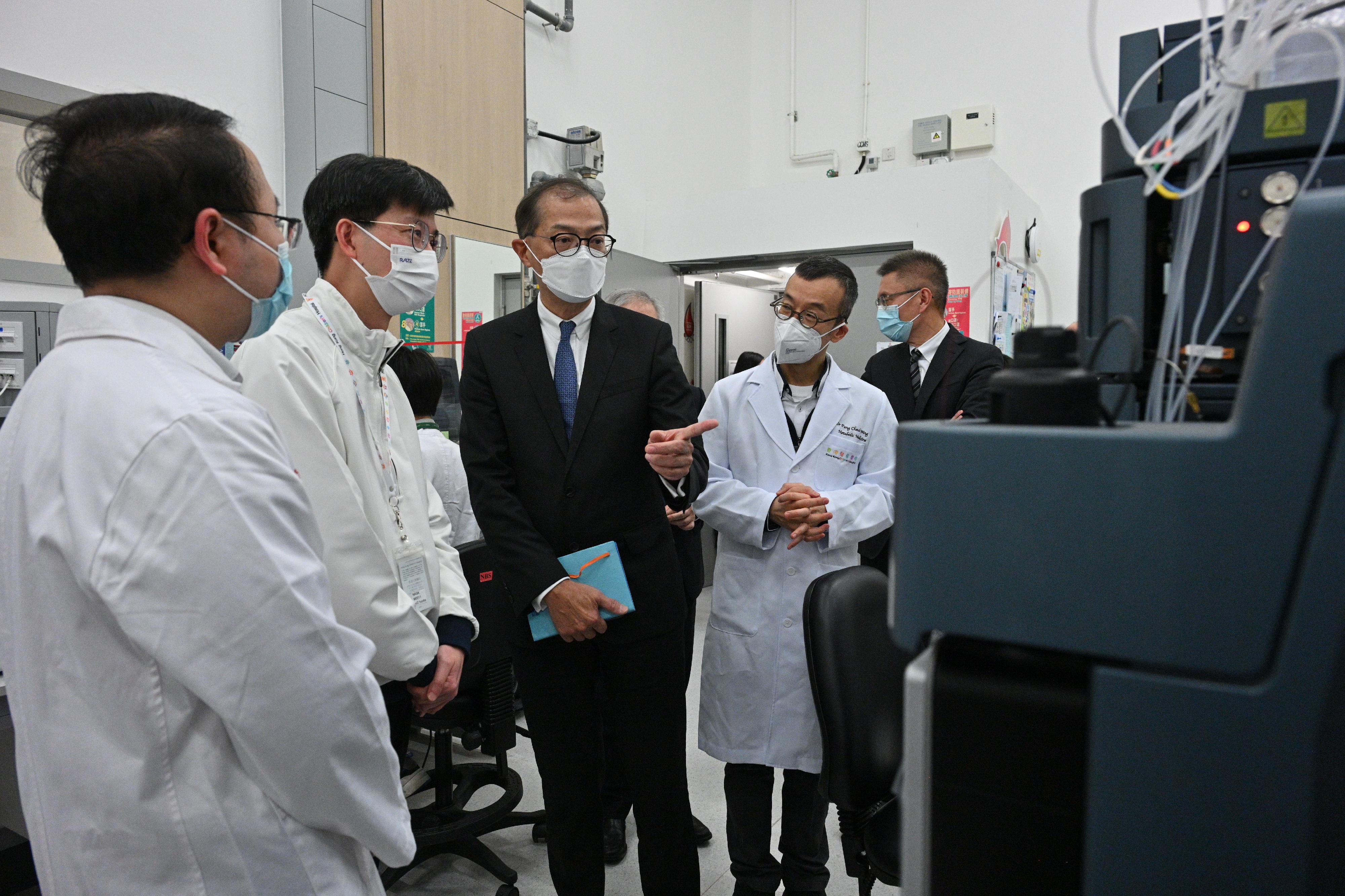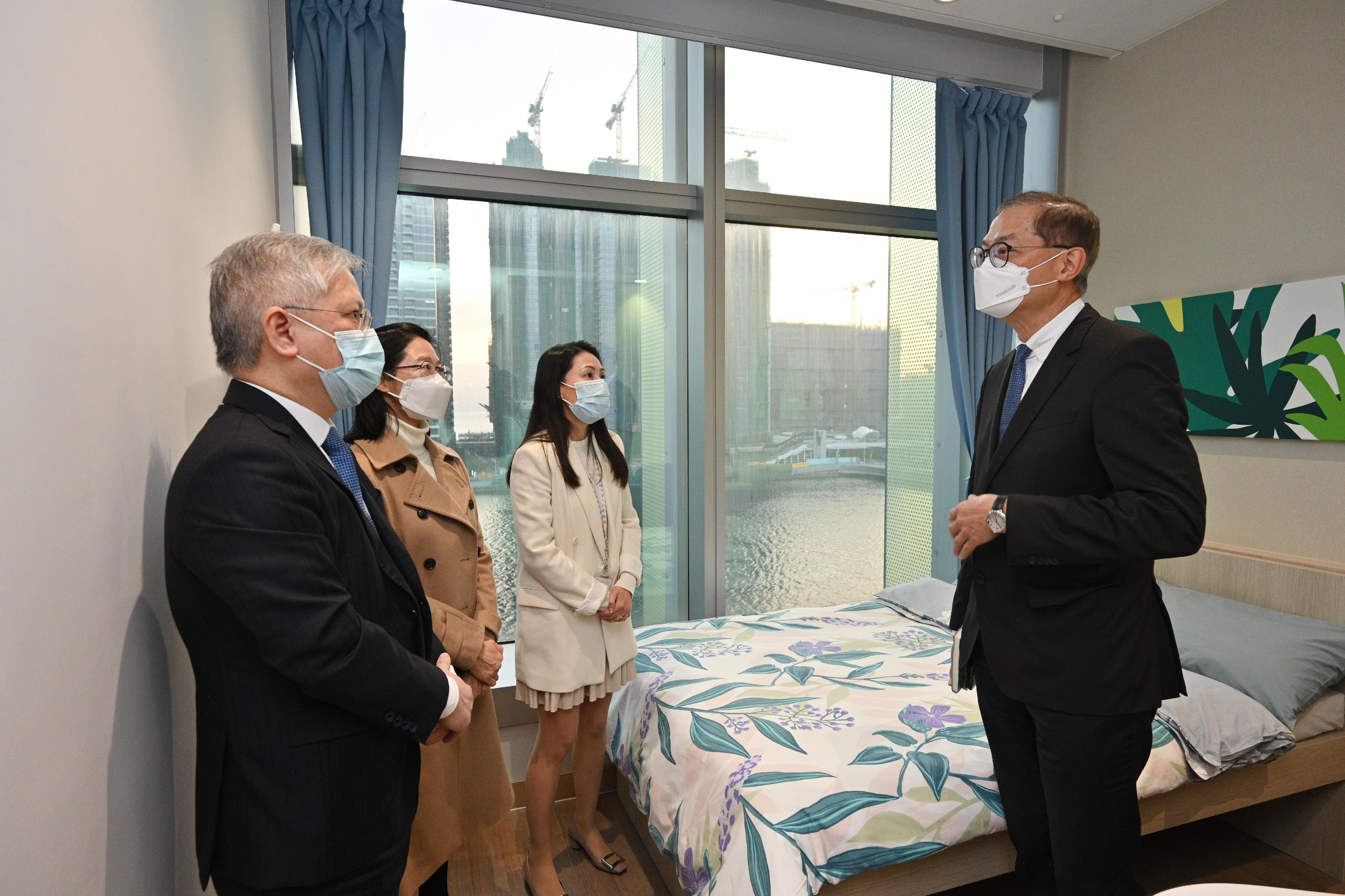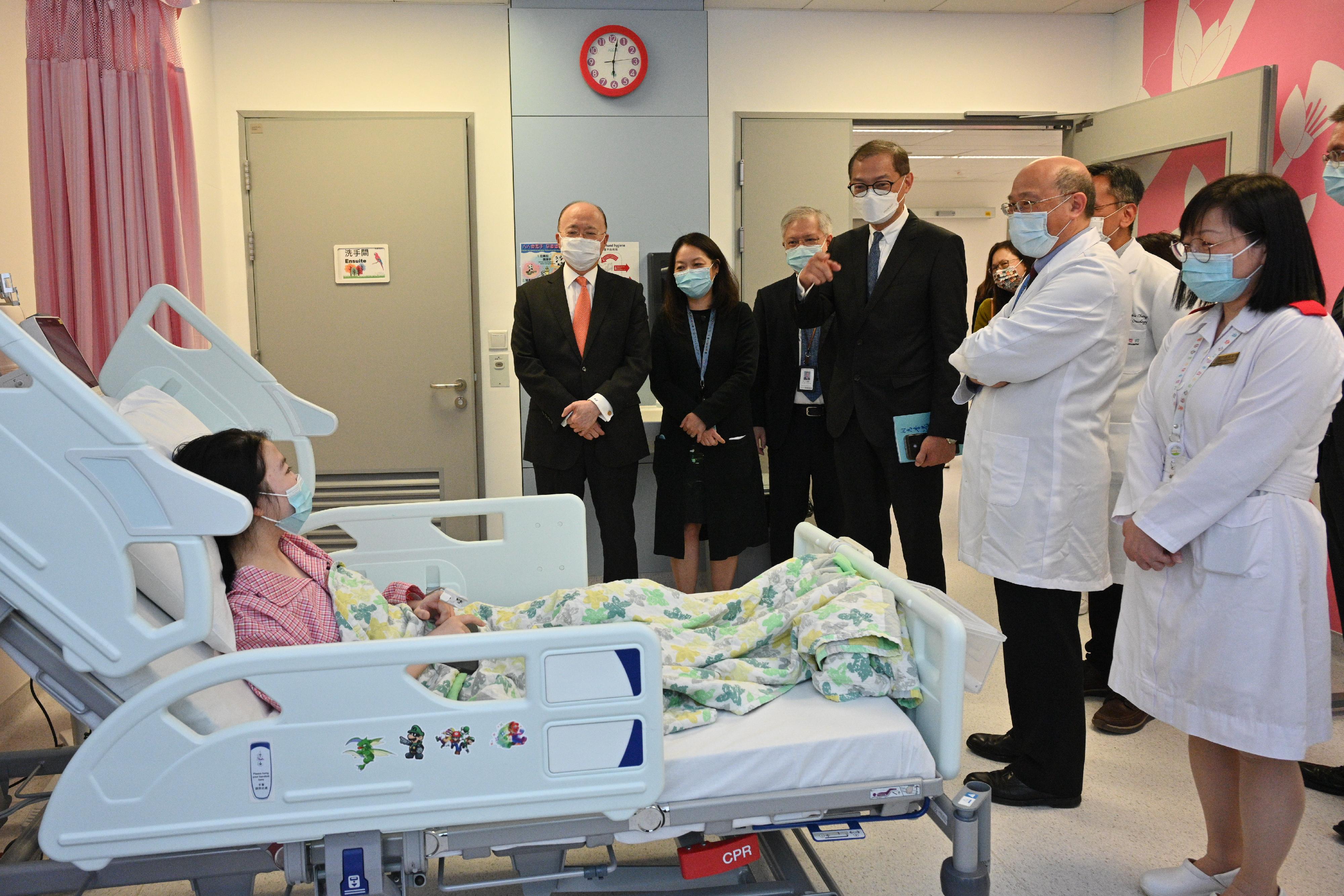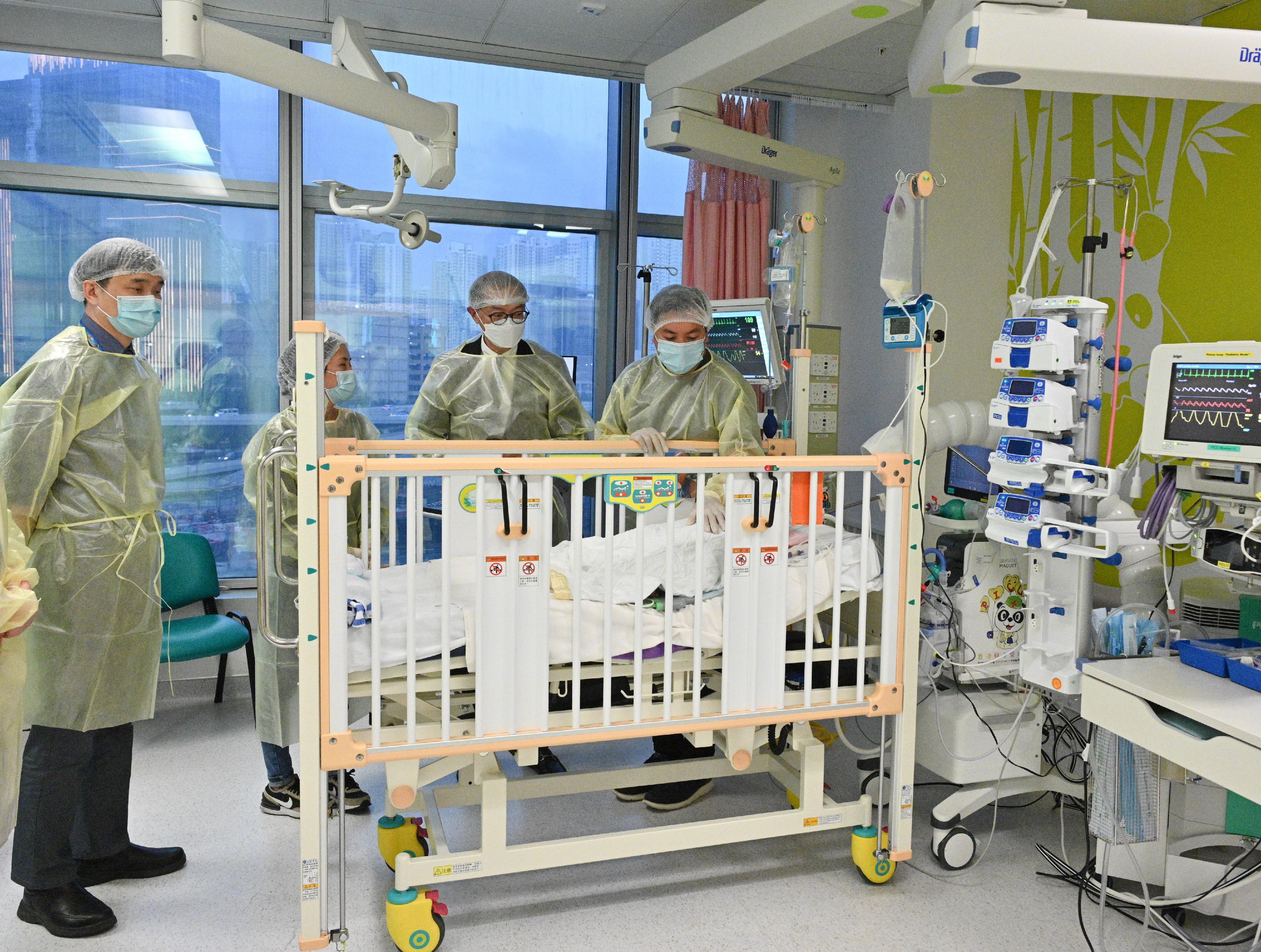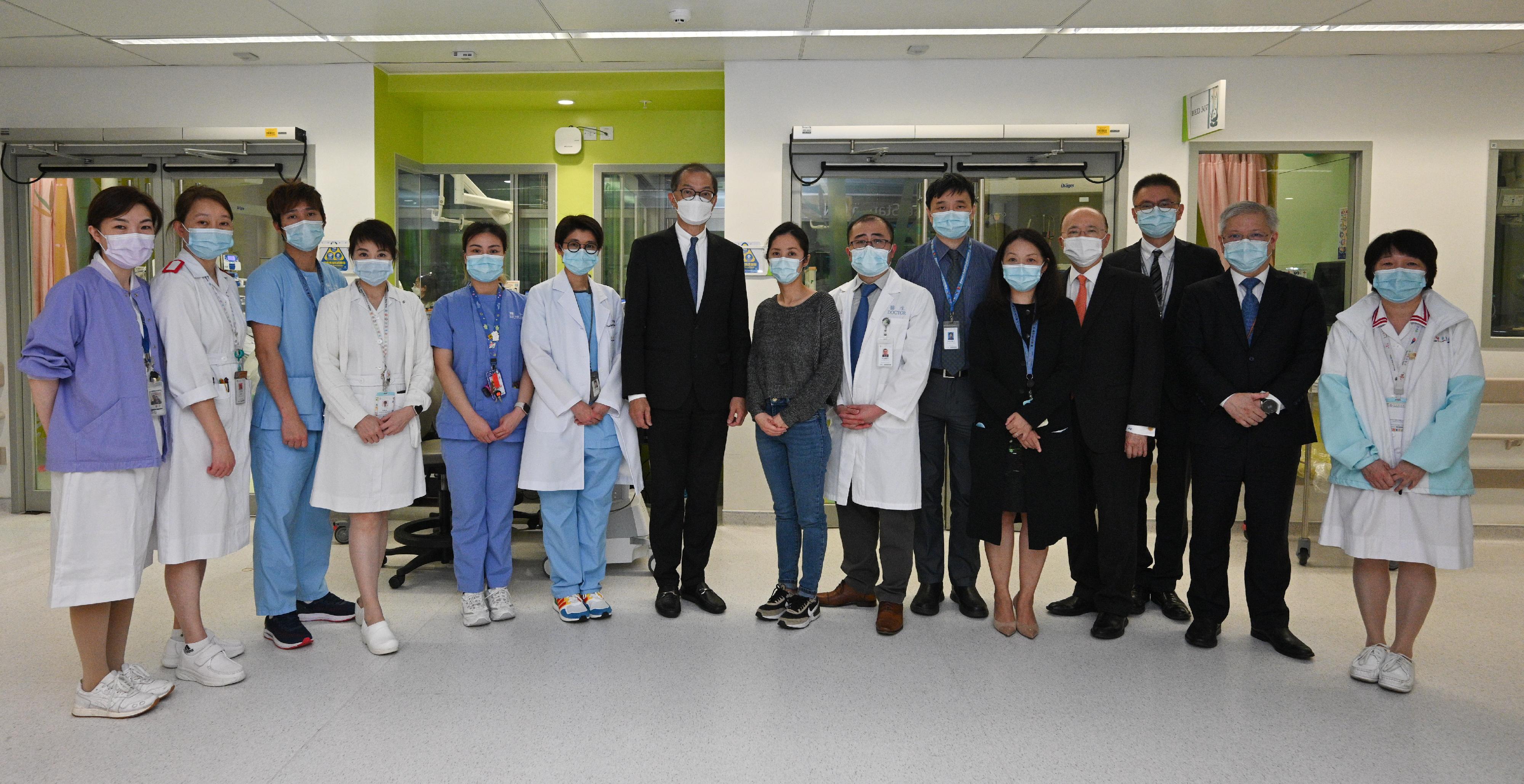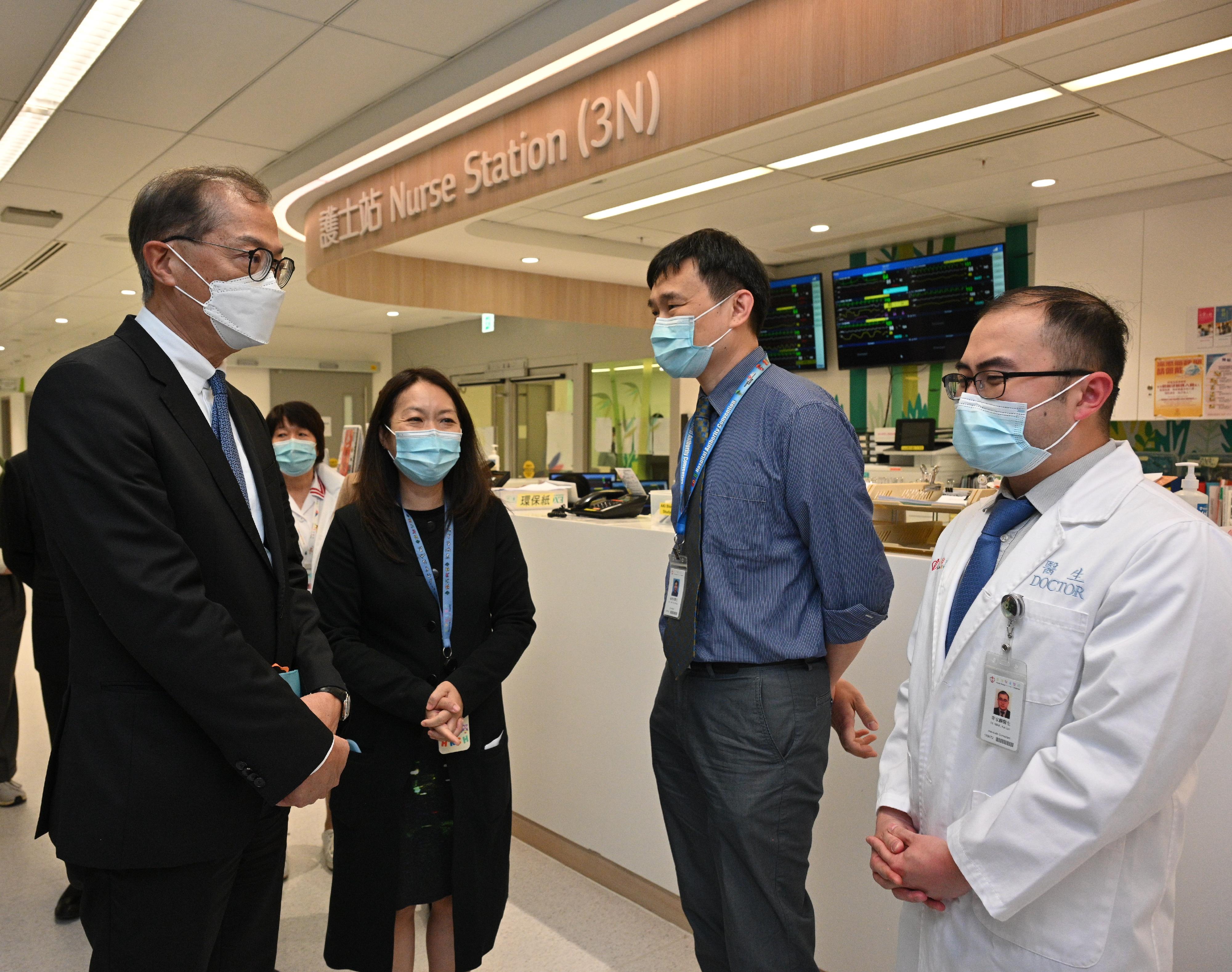Secretary for Health visits Hong Kong Children's Hospital (with photos)
***********************************************************************
Accompanied by the Chairman of the Hospital Governing Committee of the HKCH of the Hospital Authority (HA), Mr John Lee, and the Cluster Chief Executive of Kowloon Central Cluster, Dr Eric Cheung, Professor Lo first met with the hospital management and frontline healthcare staff. He then proceeded to visit the newborn screening for inborn errors of metabolism laboratory, the family overnight rooms and the haematology and oncology ward, followed by receiving a briefing by frontline healthcare staff about the service demand and manpower deployment in the HKCH.
Professor Lo thanked the healthcare staff for their professionalism in offering professional and loving care to sick children. He said, "Since its commissioning, the HKCH has been providing highly professional services to serve as a tertiary specialist referral centre, with focus on handling complicated, serious, uncommon cases, as well as the paediatric diseases requiring multidisciplinary management. This is conducive to establishing and co-ordinating a coherent paediatric service network for enhancing the quality of healthcare services for children. Meanwhile, the HKCH also shows its thoughtfulness for the families of sick children through its commitment to create a family-friendly environment in relieving the anxiety of the children and their families."
Professor Lo also visited Tsz-hei, the 5-month-old baby girl who had undergone a successful transplant surgery at the HKCH at the end of last year. The surgery also marked the first case of receiving a heart donated gratuitously across the boundary by a brain-dead Mainland child. He met with Tsz-hei's parents and communicated with the healthcare team to have a clearer picture of Tsz-hei's latest condition.
He said, "I am delighted to learn that Tsz-hei is making a satisfactory progress towards recovery with her condition continues to improve. I knew that the transportation of the heart from the Mainland and the transplantation process were no easy tasks. The transplant surgery also posed great challenges to the medical team. I am truly grateful to the team for their endeavor and persistence in saving and taking good care of Tsz-hei all along. Their act embodied the professionalism and noble spirit of Hong Kong's healthcare personnel in 'treating patients as relatives'.
"This collaboration also fully demonstrated the shared principle and mission of the Mainland and Hong Kong in protecting lives, which is of great significance. I would like to thank the Central Government and relevant Mainland authorities again for their solid support and co-ordination, and the donor's parents for their selflessness. In fact, the national human organ donation work has made remarkable achievements in recent years and the China Organ Transplant Response System (COTRS) is highly recognised by the World Health Organization and The Transplantation Society."
Professor Lo stressed, "Although there is no standing mechanism in Hong Kong for sharing donated cadaveric organs with medical institutions outside Hong Kong (including those in the Mainland), individual cases of cross-border organ import and transplant have all along been permitted and approved on a case-by-case basis under the laws of Hong Kong as the situation warrants. With regard to Hong Kong and the Mainland, in spite of the different regulations, allocation systems and clinical management of patients for organ donation and transplant, stringent requirements for areas such as acquisition, allocation, cross-boundary transportation of cadaveric organs formulated in accordance with international standards are in place in both Hong Kong and the Mainland."
Over the past three years, the number of organ transplant in Hong Kong is far from satisfactory and actually on a downward trend due to the COVID-19 epidemic. At present, nearly 3 000 citizens are awaiting organ transplant. Professor Lo appealed to members of the public to register their wish to donate organs via the Centralised Organ Donation Register website (www.codr.gov.hk/codr/Internet.xhtml), and make their wish known to family members.
He added, "The HKSAR Government has been committed to cultivating a culture that is supportive of organ donation. The Department of Health and the HA have been sparing no efforts in collaborating with community partners to promote organ donation in the society, with a view to rekindling the lives and hope of the patients waiting for organ transplant and their families."
Ends/Thursday, February 2, 2023
Issued at HKT 21:01
Issued at HKT 21:01
NNNN





